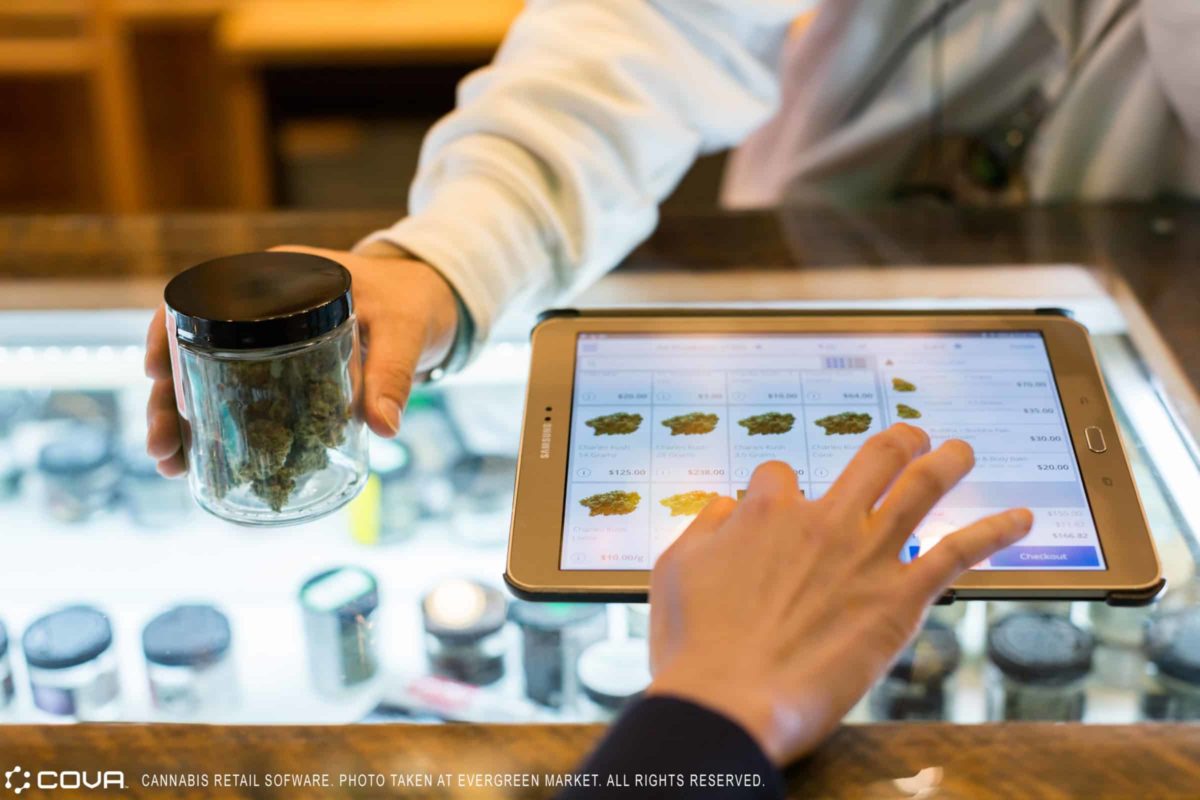How an Integrated POS Can Save Your Cannabis Dispensary

Have you ever wondered how governments quickly pinpoint the exact batch of spinach causing the recent E. Coli outbreak? It’s all thanks to strict food safety and traceability requirements enforced by the Food & Drug Administration and other government entities.
Traceability is a necessary piece of many industries, cannabis included. But its necessity doesn’t diminish how much of a headache Seed-to-Sale systems can be for dispensary owners. Failure to comply with traceability requirements can end in the loss of a license, so accurate reporting is vital. But it can be challenging without the right tools.
Cannabis retailers can help themselves by investing in technology that will make Seed-to-Sale tracking easier. As many retailers in Washington have realized, the usefulness, accuracy, and efficiency of a traceability system is only as good as the Point of Sale (POS) system it’s integrated with.
Seed-to-Sale Growing Pains in Washington
Seed-to-Sale tracking systems are necessary to protect consumers, but can cause a lot of stress for cannabis business owners. And no one knows quite how painful traceability can be more than Washington’s cannabis retailers.
Things have been complicated since the Washington State Liquor and Cannabis Board (WSLCB) implemented a new traceability system, MJ Freeway’s Leaf Data System, earlier this year. The switch came after the state failed to renew their contract with BioTrackTHC and has been a nightmare for many cannabis operators.
Under Washington law, all marijuana must be tracked from the moment it’s planted to when it’s finally sold to the end customer. For cannabis retailers, that means keeping track of every piece of inventory that is disposed of, sold, or returned and reporting those transactions daily to the state via the government-approved traceability system.
The gap period between the end of BioTrack’s contract and the start of MJ Freeway’s, plus a less than ideal launch of the new Leaf system, left cannabis operators reeling. For months, cannabis businesses had to turn in excel spreadsheets, tracked by hand, of all transactions each day to the WSLCB — spreadsheets that cost man hours and could be riddled with errors.
The situation in Washington highlights the need for cannabis retailers to invest in a reliable, integrated POS.
How an Integrated POS Saves Time and Money
A healthy cannabis dispensary can experience hundreds of customer transactions every day. For some large or multi-location retailers, that number may be in the thousands. Manually reporting each of these transactions to the WSLCB, in a format accepted by Leaf, would be a full-time job. And time is a precious commodity for cannabis entrepreneurs.
Investing in an integrated POS for a cannabis retail store will keep you from spending countless hours on reporting or save the money it would cost to pay someone else to do the job.
Eliminate Human Error to Save Your Cannabis Retail License
Humans are fallible. Even the most detail-oriented employee could transpose numbers and misreport daily sales, especially if they are responsible for tracking thousands each week.
Improperly reporting daily transactions from your cannabis retail location is not treated as a simple mistake, even if it is an accident. States can and will punish a cannabis retailer for reporting errors. In Washington, multiple infractions could cost hundreds or thousands of dollars in citation fees, a suspension of business, or a complete loss of license. Having a reliable POS that integrates with Leaf, or other state traceability systems, can save a business from being shut down.
Overall, the simple decision to invest in an integrated POS can quite literally save your business. For Washington retailers, Cova is fully integrated with Leaf traceability system. Learn more about Cova POS.
By : Gary Cohen CEO, Cova
